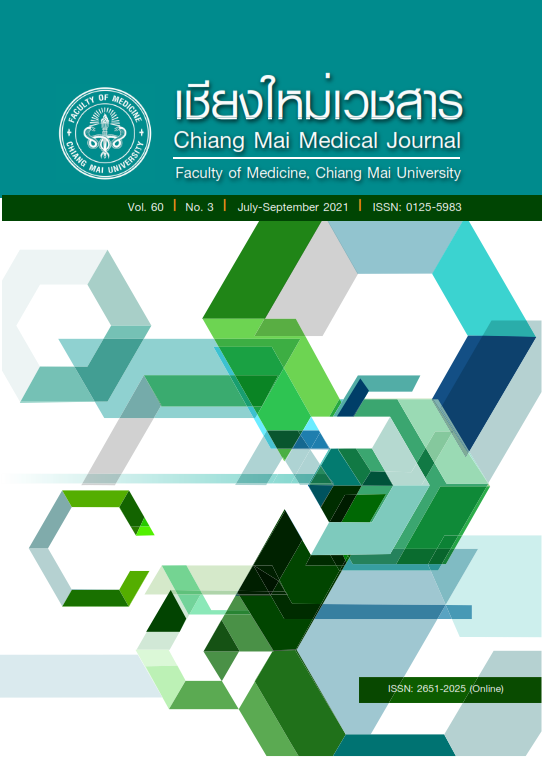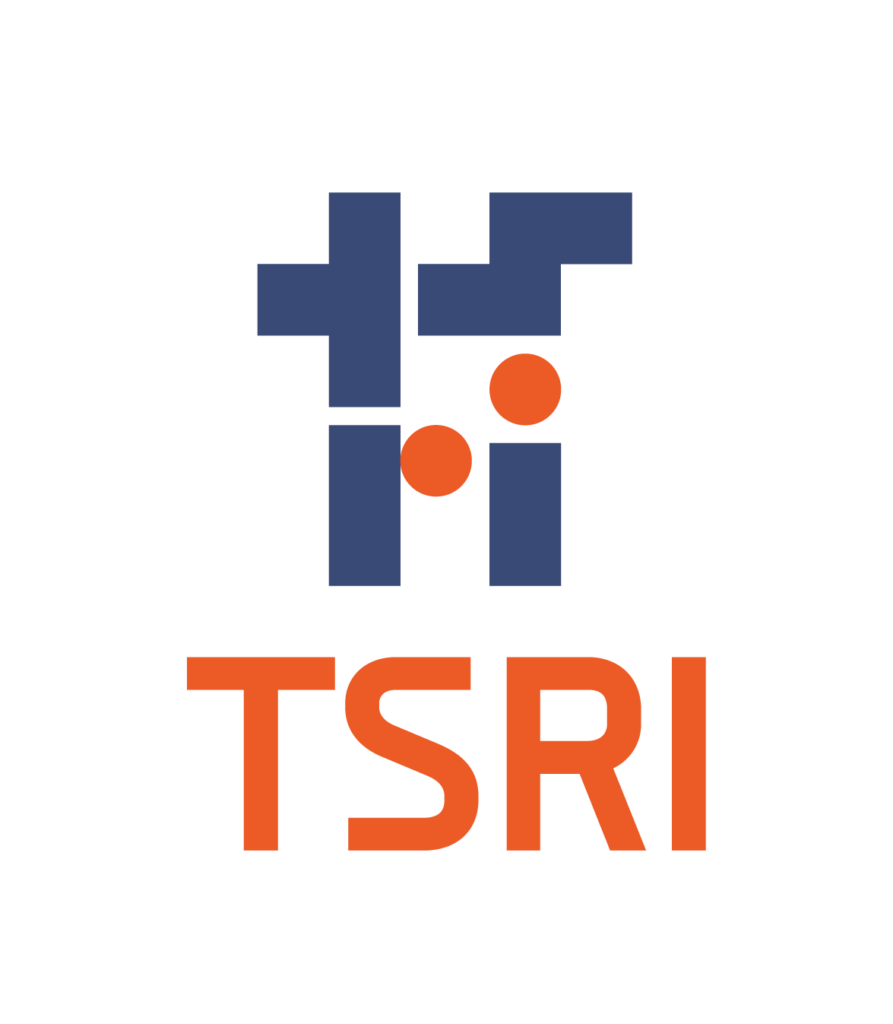The development of Children’s and Adolescents’ Functional Assessment Rating Scale
Keywords:
Questionnaire Function Children and Adolescents Validity ReliabilityAbstract
Objectives To develop and test the validity and reliability of a functional assessment rating scale for use with children and adolescents with mental illness in Thailand.
Methods Documents and studies related to functional rating scales both in Thailand and other countries were reviewed and used in developing a clinician-rated functional assessment rating scale. The scale consists of 15 items in 4 functional domains: performance, risky behaviors, presenting symptoms and strengths. The draft questionnaire was evaluated for content validity by three experts using the index of item-objective congruence (IOC). The rater agreement index (RAI) was calculated. Patients of the outpatient, inpatient and day hospital units of the Division of Child and Adolescent Psychiatry at Siriraj Hospital, Bangkok were recruited into this study. The 10 clinicians who rated the patients included physicians, psychologists and occupational therapists. The standardized Children’s Global Assessment Scale (CGAS) was used as a comparator for convergent validity. Cronbach’s alpha was used to measure reliability and the Pearson correlation was used to measure validity.
Results The study identified 250 eligible patients, 243 of whom were included in the analysis. Most of the participants were male (65.4%) and the mean age of the group was 11.5 years. The three most frequent principle diagnoses were attention-deficit/hyperactivity disorder (63%), depression (20.2%) and autistic spectrum disorder (3.7%). The Cronbach’s alpha coefficient for the functional assessment rating scale was 0.825 and the Pearson correlation coefficient between the newly developed scale and CGAS was statistically significant (r = 0.781).
Conclusions The Children’s and Adolescents’ Functional Assessment Rating Scales demonstrated good validity and reliability. This instrument is appropriate for use by clinicians in evaluating, following up and developing treatment plans for patients.
References
Lyons JS, Griffin E, Fazio M, Lyons MB. Child and adolescent needs and strengths: an information integration tool for children and adolescents with mental health challenges (CANS-MH). Chicago: Buddin Praed Foundation; 1999.
American psychological association [Internet]. Washington DC: Understanding psychological testing and assessment; c2018 [cited 2018 Oct 28]. Available from: https://www.apa.org/helpcenter/assessment.aspx
Hodges K. Child and Adolescent Functional Assessment Scale. In: Maruish ME, editor. The use of psychological testing for treatment planning and outcomes assessment. New Jersey: Lawrence Erlbaum; 2004. p. 405-9.
Hodges K. CAFAS manual for training coordinators, clinical administrators, and data managers. Ann Arbor, Michigan: Author; 2003.
Ward JC, Dow MG, Saunders TL, Halls SC, Penne KF, Musante KA, et al. Children’s Functional Assessment Rating Scale [Internet]. Florida: c2018 [cited 2018 Oct 28]. Available from: http://outcomes.fmhi.usf.edu/cfars.cfm
Thurston Mason Behavioral Health Organization. Information for providers: CALOCUS instrument [Internet]. Washington; c2018 [cited 2018 Oct 28]. Available from: http://tmbho.org/wp-content/uploads/2016/06/CALOCUS.Instrument.pdf
Rosie D. Summaries of functional assessment instruments for child and adolescent outcomes [Internet]. Massachusetts; c2007-08 [cited 2018 Oct 28]. Available from: http://www.rosied.org/DocumentHandler.ashx?DocId=6525
Shaffer D, Gould MS, Brasic J, Ambrosini P, Fisher P, Bird H, et al. A Children’s Global Assessment Scale (CGAS). Archives of General Psychiatry. 1983;40:1228–31.
Pornnoppadol C, Piyasilp V, Jittorn J, Chanpen S. The Development of Screening Scales for attention deficit hyperactivity disorder (ADHD) in Thai Children and adolescents age of 3-18 yeas. Journal of the Psychiatric Association of Thailand. 2014;59:335-54.
Punyapas S, Pornnoppadol C, Boon-Yasidhi, Likhitkiatkrachorn P. Reliability and Validity of Weiss Functional Impairment Rating Scale (WFIRS) – Thai version in Children and Adolescents with attention deficit hyperactivity disorder. Journal of the Psychiatric Association of Thailand 2015;60:111-126.
Punpanich W, Boon-Yasidhi V, Chokephaibulkit K, Prasitsuebsai W, Chantbuddhiwet U, Leowsrisook P, et al. Health-related quality of life of Thai children with HIV infection: a comparison of the Thai Quality of Life in Children (ThQLC) with the Pediatric Quality of Life Inventory version 4.0 (PedsQL 4.0) Generic Core Scales. Qual life Res. 2010;19:1509-16.
Ministry of Public Health; Strategy and Planning Division; Office of the Permanent Secretary (Thailand). Standard Coding Guidelines Version Edition 2017: General guidelines. Bangkok; 2017. p. 8-12.
Downloads
Published
How to Cite
Issue
Section
License

This work is licensed under a Creative Commons Attribution-NonCommercial-NoDerivatives 4.0 International License.










